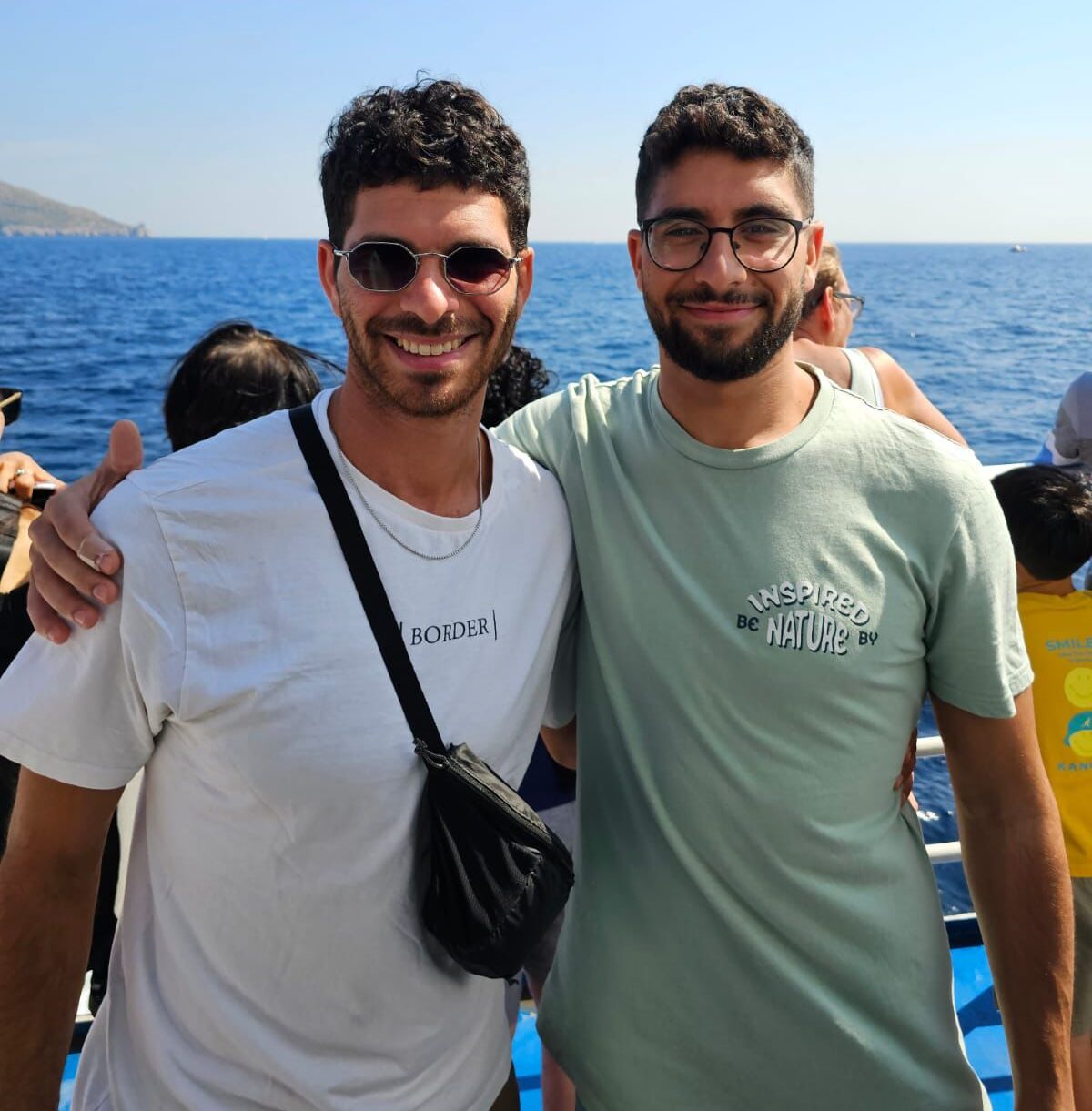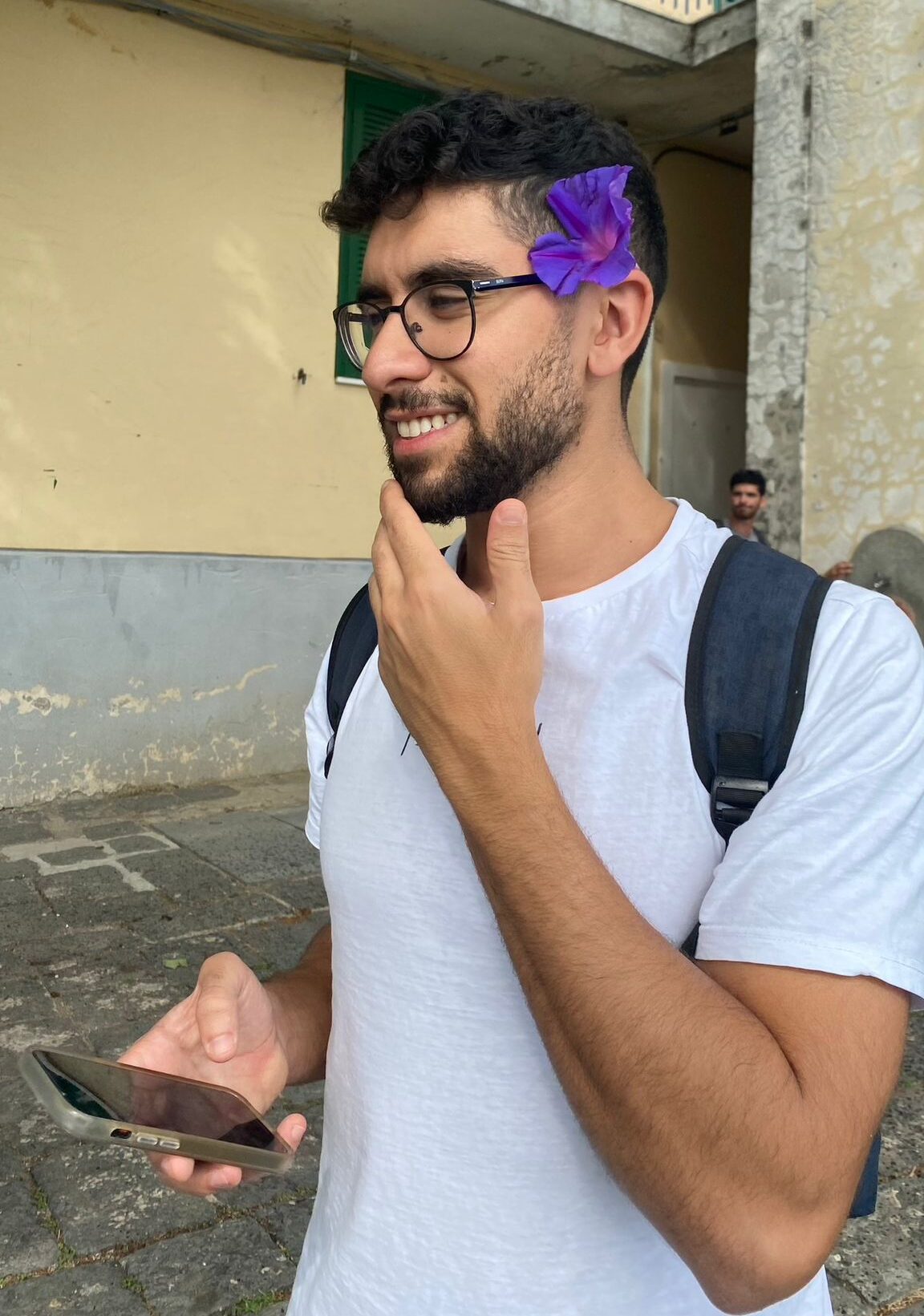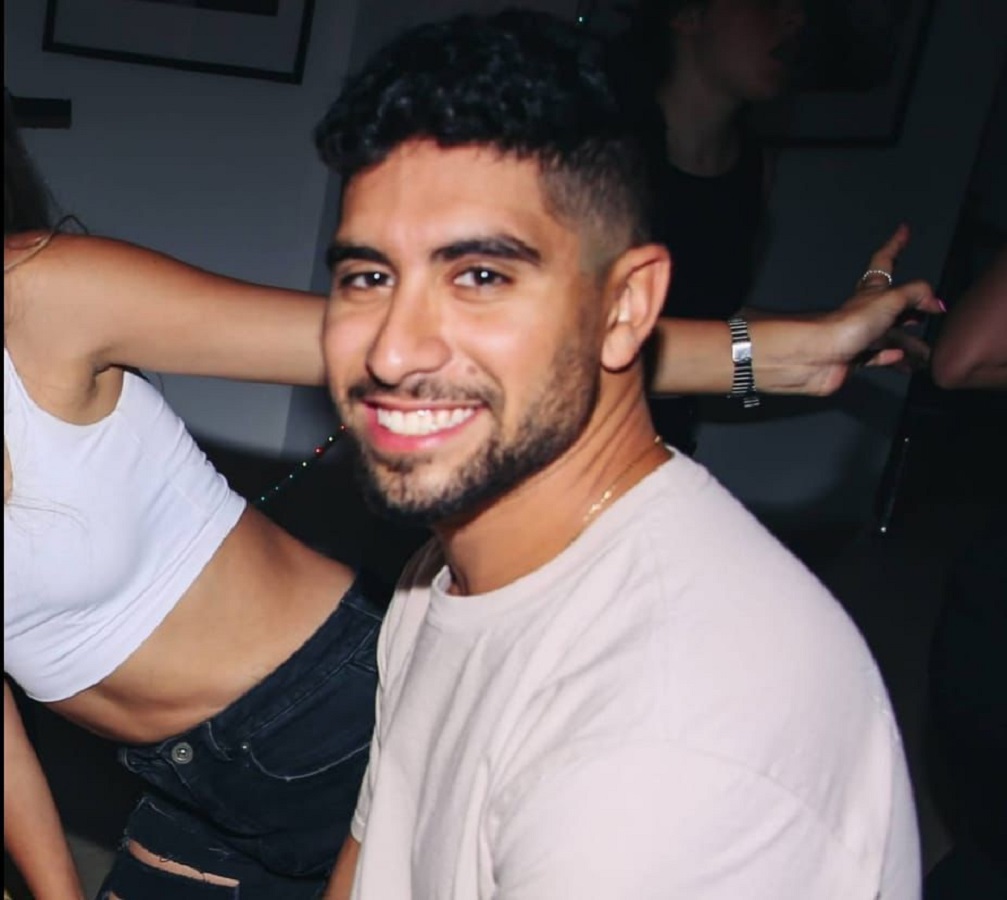The older brother of hostage Evyatar David shared the sense of urgency of the hostages’ situation in Gaza while providing a nuanced understanding that Israel will have to make an impossible choice to free them.
Evyatar David, a 23-year-old Israeli, was among the hostages taken by Hamas terrorists at the Nova music festival on October 7. Nearly a year after his kidnapping, Evyatar is one of more than 100 hostages still held by the Iranian proxy in its tunnels in Gaza.
Evyatar’s brother, Ilay David, spoke to The Media Line about what he’s been going through. While expressing hope that his younger brother is still alive despite the terrible conditions he is facing underground, Ilay also offered a nuanced understanding: freeing the hostages will come at a high cost for Israel and that saving the most lives isn’t a simple calculation.

Ilay (L) and Evyatar David. (Courtesy Ilay David)
TML: Can you introduce yourself?
Ilay David: My name is Ilay David. I’m 27 years old and live in Jerusalem. I’m the oldest of three siblings. Evyatar is 23, and Yeela is 19. I’m originally from Kfar Saba, a small town near Tel Aviv. Before October 7, I was a physics student and worked with teenagers in various capacities.
TML: How has your life changed since your brother was kidnapped?
Ilay: My life was completely different before that day. Now, about 95% of my time is dedicated to advocating for my brother Evyatar around the world and the other hostages. It’s been stressful for our family.
TML: Can you describe what happened on the morning of October 7?
Ilay: The evening before, we had a family holiday dinner, a typical, calm occasion. Evyatar left early to meet friends at the Nova festival around midnight. Everything was so common in our day-to-day lives that we weren’t concerned. He had been to so many festivals that we were used to it. But everything changed the next day when rockets were fired toward Kfar Saba. My family rushed to our bomb shelter, and we felt worried because Kfar Saba isn’t a regular target of these terror organizations. Then we started to be concerned, and our mom immediately texted Evyatar because she knew he was close to the Gaza border.
TML: How did you feel during that moment?
This holiday season, give to:
Truth and understanding
The Media Line's intrepid correspondents are in Israel, Gaza, Lebanon, Syria and Pakistan providing first-person reporting.
They all said they cover it.
We see it.
We report with just one agenda: the truth.


Ilay: We’ve been dealing with this for decades, so we’re used to it. Evyatar initially assured our mom he would be fine. We felt assured of his safety, and Evyatar was very calm, so we felt the situation was under control. Sometimes Evyatar is even too calm. Nobody knew what was going on, and people in the party just thought it was another rocket attack. So they started to leave the party, but no one was in a hurry because they didn’t know the terrorists’ [attacks] were underway. By 7:42 AM, he sent his last message saying that he was on his way, and after that, he disappeared.
TML: When did you start to worry?
Ilay: I didn’t start to worry until one of Evyatar’s friends called her mom while hiding. She was crying, not knowing where Evyatar and another friend, Guy, were. She heard all the explosions and didn’t know what to do. Later, we learned that she had been killed.
TML: How did you begin searching for your brother?
Ilay: Desperate for information, we began our search. I thought I might have to prepare to bury my brother. I thought it was the end, and that I would have to bury my little brother and care for our parents and sister. Then Yeela, determined to help, posted a photo of Evyatar online. Around 2 PM, we received a message from someone who believed they saw Evyatar in a video. We hadn’t watched any videos circulating online until that moment. I took her phone and found two videos showing Evyatar in Gaza, tied up and terrified. It was horrific to see him in that situation, knowing he understood he could die at any moment. Knowing how calm he was, I understood how afraid he was at that moment. I felt he was looking at my soul, asking for help through that camera. I could see his primal fear in that situation and that he understood that he could die any second.
TML: How do you cope with the trauma?
Ilay: At first, it felt like the whole world was falling apart. A doctor explained to me I was having a mental breakdown, but after that, I kept telling myself he was alive. I feel it in my bones. The last news we had from Ilay was that he was alive, and the IDF didn’t find evidence that he was murdered. The videos we saw showed him without his glasses and being dragged, but he was still alive. I believe he and more than 60 other hostages are still alive, and we need to keep fighting for their return. We can save them. They’re underground, in dirty cages, in inhuman conditions for nearly a year. I can’t even hold this thought for long because it makes me go crazy.

Evyatar David. (Courtesy Ilay David)
TML: What do you think about the ongoing military actions in Gaza?
Ilay: No one knows what the best solution is right now. Every way of action will have a cost to us, no matter what we do, and it might cost human lives. That is the math you must do: What will cost us fewer lives? Also, it is impossible to separate what is happening in Israel’s north with Hezbollah from what is happening in Gaza with Hamas. These are both Iranian proxies, and the attack done by Hamas could have been done by Hezbollah, killing and kidnapping residents in the north of Israel. Both groups share a radical ideology aimed at annihilating Israel. The radical elements don’t understand diplomacy. I worry not just about my brother but also about the soldiers protecting us. I have friends fighting for Israel right now, and I’m worried for them as well.
They [Hezbollah and Hamas] share not just an agenda but also methods. At least evil showed its real face with all of this violence. The war against Hamas is interconnected with the fight against Hezbollah. Maybe military operations can help free the hostages because the terrorists holding them don’t have an interest in diplomacy. Their only interest in diplomacy is to weaponize it like they have been doing to the liberties they have in Western nations. They see these values and desire to live with liberty as weaknesses. I feel frustrated with those downplaying the situation. It’s complicated, and there’s no clear solution. Every action has consequences, and we must consider the human cost.
The only thing I know is that this started when they murdered and took hostages. This will only be over when the remaining hostages return home, and a deal is made. There is no other way. We must negotiate for their safety. People think the hostages are no longer alive, but that’s not true. We believe Hamas is keeping them in terrible conditions, but they are alive, so they can use them as leverage in negotiations. We estimate that more than 60 hostages are still alive, and we can save them.
TML: What has your experience been like when meeting government officials?
Ilay: I’ve met with several officials, including [Israeli] Prime Minister Netanyahu. The experience has generally been cooperative, and I have met most of them. We also met the prime minister, who often seems reserved since he needs to handle many variables involved in freeing the hostages.

Evyatar David. (Courtesy Ilay David)
TML: How do you feel about public reactions to military action?
Ilay: We need to free Gaza from Hamas. The people of Gaza chose their leadership, which has taught them hatred for two decades. The Israeli soldiers fighting don’t want to kill; they want to protect and save hostages. To the audience that just keeps shouting ‘Free Gaza,’ I tell them that we need to free Gaza from Hamas.
Many people don’t understand that Hamas was elected in Gaza, and then they killed all their opposition by throwing them off of buildings. The people of Gaza chose their future, but I don’t know if they knew Hamas was going to do such a thing. Now, it has been more than 20 years of hate towards Israel and the US. That’s why it was so easy for the terrorists to kill in such barbaric ways as they did on October 7.
TML: Thank you for sharing your story, Ilay.
Ilay: Thank you.